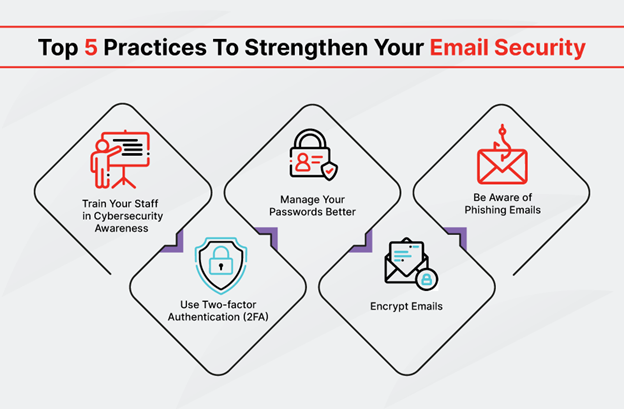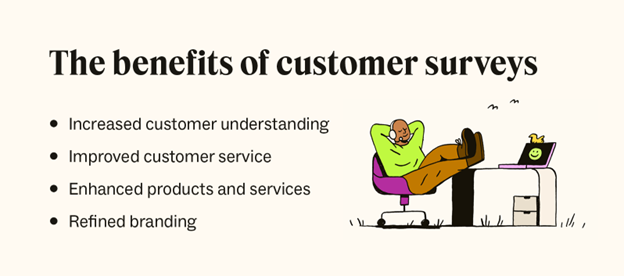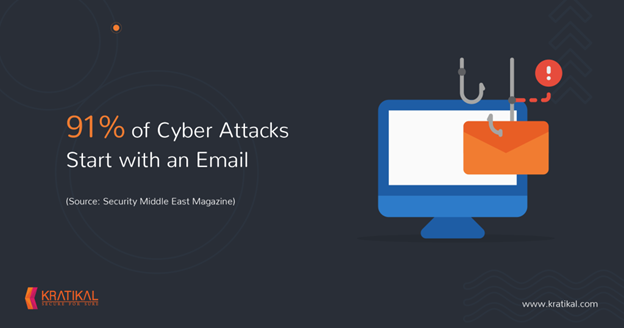How Secure Are Your Emails? Insights into Business Growth, Data Management, and Marketing Synergy
In today’s hyper-connected world, email remains one of the most critical business tools. Yet, it’s often overlooked when discussing data security, marketing effectiveness, and overall business strategy. Did you know that over 91% of cyberattacks start with a phishing email? According to a 2024 report by Verizon, email is the primary vector for cyber threats, making robust email security indispensable for modern businesses.
But security is just one piece of the puzzle. Businesses today also need to harness the vast potential of email data to drive decisions, improve marketing strategies, and optimize operations. How can organizations effectively balance these priorities while staying ahead in search engine optimization (SEO) and digital marketing?
The Foundation of a Secure and Efficient Email System
A secure email system protects against breaches, ensures data integrity, and aids in compliance. For businesses that handle sensitive information, implementing a secure and scalable solution like cloud data archiving is vital. Such solutions safeguard data and make it easily accessible for audits and analytics. Alongside archiving, using a secure email provider strengthens overall communication security. Some services like Atomic Mail also give users the option to send anonymous emails, helping minimize exposure to phishing, spoofing, and other email-based threats. This added privacy can be especially valuable when handling sensitive or high-risk conversations.
Benefits of a Well-Structured Email Security Strategy
- Enhanced Data Protection: Encryption and two-factor authentication (2FA) prevent unauthorized access.
- Compliance with Regulations: Meeting standards like GDPR or HIPAA avoids legal penalties.
- Operational Continuity: Backups ensure minimal disruption during cyber incidents.
Modern businesses increasingly adopt cloud email archiving to streamline these benefits. With secure storage and easy retrieval, archived emails become valuable assets for business intelligence. Additionally, archiving enhances accountability by preserving a record of all communications, which can be crucial in legal or compliance scenarios.
Leveraging Email Data for Business Growth
Email data holds a wealth of insights that can transform business strategies. Whether it’s analyzing customer preferences or understanding employee communication patterns, tapping into this resource is invaluable. However, the sheer volume of email data can pose challenges, emphasizing the need for structured management and analysis.
Steps to Extract Value from Email Data
- Organize Data Storage: Ensure emails are categorized and archived systematically. A well-structured system minimizes retrieval time and reduces the risk of data loss.
- Identify Key Metrics: Focus on response rates, customer segmentation, and click-through data. Tracking these metrics regularly provides insights into campaign effectiveness and areas for improvement.
- Integrate with Analytics Tools: Tools that export data from Google Analytics can enrich email marketing campaigns with user behavior insights. This integration offers a comprehensive view of how users interact with emails and other digital touchpoints.
- Utilize Surveys for Feedback: Crafting targeted surveys can help improve customer satisfaction and refine business operations. Feedback collected through surveys can identify pain points and opportunities for innovation.
Analyzing email data doesn’t have to be overwhelming. Pairing raw email insights with a robust CRM system makes tracking customer interactions seamless. Businesses can further enhance this process by employing automated tools that categorize and summarize data for actionable insights.

Unlocking the Power of Email Marketing
Email marketing remains one of the most cost-effective ways to reach customers. According to HubSpot’s 2024 Marketing Report, email campaigns deliver an average ROI of $36 for every $1 spent. This remarkable return highlights the importance of crafting engaging and data-driven campaigns.
Best Practices for Successful Email Marketing
- Segment Your Audience: Tailored messaging resonates better with different customer groups. Segmentation allows businesses to address specific needs and preferences.
- Focus on Personalization: Include customer names and recommend products based on purchase history. Personalized emails have been shown to boost engagement rates significantly.
- Optimize Subject Lines: Keep them short, compelling, and action-oriented. A well-crafted subject line can mean the difference between an opened email and one that’s ignored.
- Regular A/B Testing: Experiment with content formats, visuals, and CTAs to determine what works best. Continuous testing ensures campaigns stay relevant and effective.
Email campaigns benefit significantly when they’re informed by conjoint analysis techniques. By understanding what customers value most—price, features, or delivery speed—you can craft messages that hit the right notes. Additionally, leveraging behavioral data can help predict future trends, allowing businesses to stay ahead of competitors.
SEO Reporting: The Overlooked Advantage in Email Campaigns
While SEO reporting is often associated with website performance, its insights can also enhance email strategies. Businesses can identify high-performing keywords from SEO reports and incorporate them into email subject lines, headers, and body content.
Integrating SEO and Email Marketing
- Keyword Alignment: Use keywords that perform well in search engines to boost email relevance. Keywords that resonate with your audience’s search intent can improve engagement.
- Track User Behavior: Insights from SEO analytics can inform customer segmentation. By understanding how users navigate through digital channels, businesses can refine email strategies.
- Measure Campaign Success: Metrics like bounce rate and session duration highlight email effectiveness. These indicators provide a clear picture of how email campaigns contribute to overall business goals.
By aligning email and SEO strategies, businesses can create cohesive campaigns that amplify their impact across multiple channels. This synergy not only drives traffic but also builds brand consistency and trust.
Creative Approaches to Business Data Utilization
Beyond marketing, email data can contribute to overarching business objectives. Innovative approaches like predictive modeling and operational analytics empower businesses to make data-driven decisions. These methods turn raw data into actionable insights that enhance performance and profitability.
Applications of Business Data
- Customer Journey Mapping: Use email engagement data to visualize customer interactions. Understanding these interactions helps in designing more intuitive and satisfying customer experiences.
- Predictive Analytics: Forecast trends based on historical email campaign data. Predictive models can guide resource allocation and strategy development.
- Performance Optimization: Collaborate with an Excel expert to analyze large datasets and uncover actionable insights. Advanced analysis can reveal patterns and correlations that might otherwise go unnoticed.
Businesses that prioritize data transparency and accessibility—enabled by solutions like cloud data archiving—are better equipped to adapt in a competitive landscape. Accessible data also fosters innovation, as teams can experiment with new approaches based on reliable information.
The Role of Surveys in Refining Business Strategies
Surveys are invaluable for capturing customer feedback and identifying areas for improvement. Conducting regular surveys—both internally and externally—enables businesses to stay aligned with stakeholder expectations. Furthermore, surveys provide a cost-effective way to gather data directly from the source, ensuring its relevance and accuracy.
Types of Surveys for Business Improvement
- Customer Satisfaction Surveys: Understand pain points and preferences. Insights from these surveys can inform product development and customer service enhancements.
- Employee Feedback Surveys: Foster a positive work culture by addressing team concerns. Happy employees are often more productive and engaged.
- Market Research Surveys: Identify emerging trends and competitive gaps. Staying informed about market dynamics helps in strategic planning and positioning.
Surveys not only inform marketing but also guide operational decisions, ensuring the entire business ecosystem is optimized for growth. By integrating survey findings into broader business strategies, companies can build stronger relationships with both customers and employees.

Future-Proofing Your Strategy: The Importance of Data Archiving Solutions
Data is only as valuable as its accessibility. Modern businesses need reliable data archiving solutions to ensure their information is both secure and retrievable. For instance, a robust cloud data archiving strategy enables companies to store emails, documents, and analytics efficiently while meeting compliance standards.
Advantages of Comprehensive Data Archiving
- Scalability: Handle increasing volumes of data without compromising performance. As businesses grow, their data storage needs evolve, making scalability crucial.
- Searchability: Quickly locate records for audits or business intelligence. Efficient search capabilities save time and enhance productivity.
- Cost Efficiency: Reduce the expenses associated with on-premises storage. Cloud solutions often provide a more economical and flexible alternative.
By integrating archiving solutions with analytics tools, businesses can draw deeper insights and maintain agility in their operations. Moreover, well-archived data supports long-term planning by preserving institutional knowledge and historical records.
Conclusion: A Holistic Approach to Email and Data Strategy
Email security, data utilization, and marketing integration are no longer standalone aspects of a business. They form an interconnected framework that drives success. By leveraging analytics tools, implementing effective cloud email archiving solutions, and refining strategies with feedback from conjoint analysis and surveys, businesses can stay competitive in an evolving digital landscape.
A proactive approach to managing email and business data not only enhances security but also unlocks new opportunities for growth. Are you ready to transform your email ecosystem into a strategic powerhouse?




